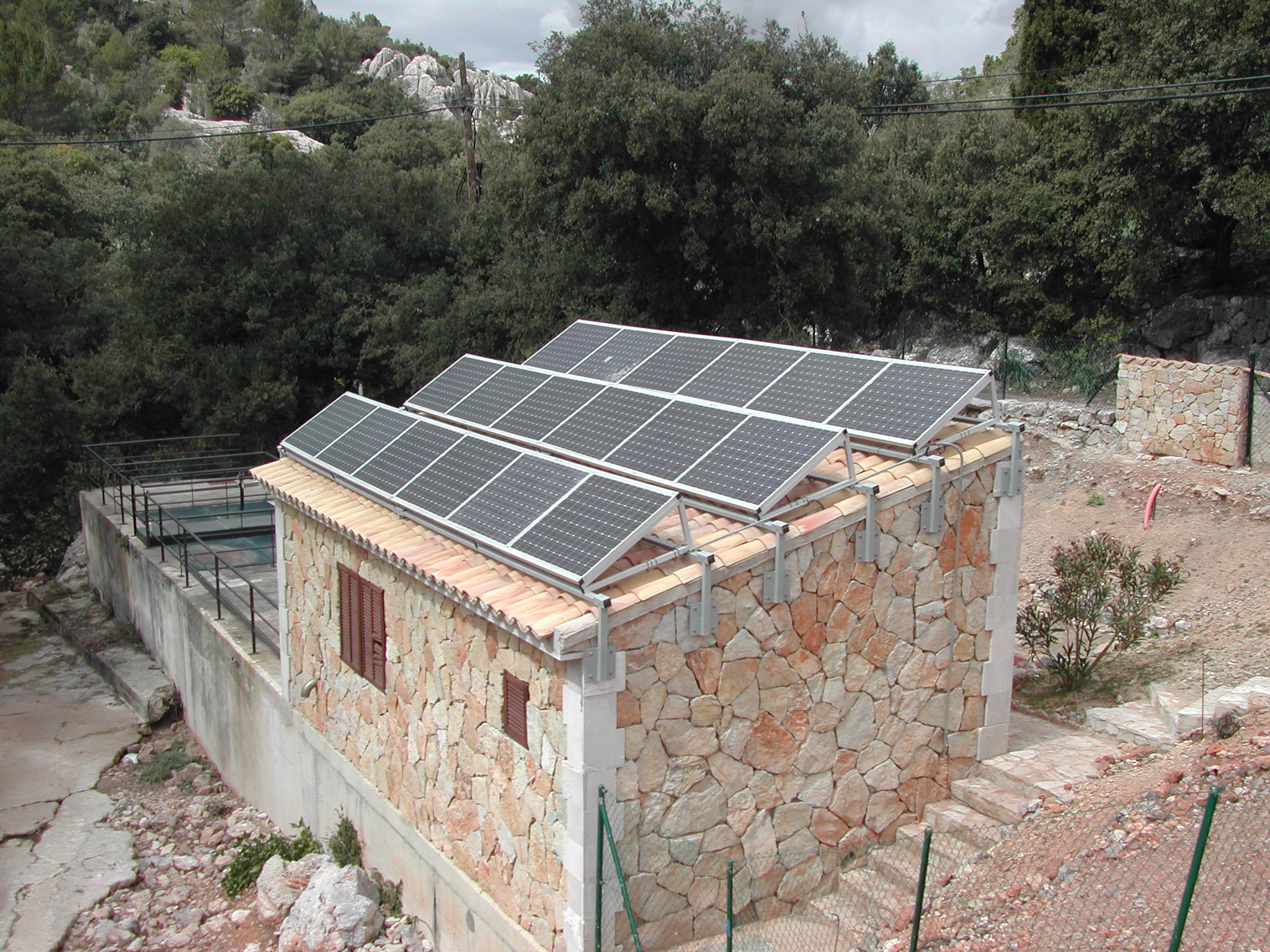Going off-grid in Jordan – treating wastewater with solar power
25/07/2016

I am studying both the environmental impact and financial cost of an integrated wastewater treatment and renewable energy system for rural and remote locations in Jordan.
In most developing countries, such as Jordan in the Middle East, the availability of sewage treatment in rural or remote locations is scarce. Sewage is usually collected in a septic tank or pit latrines and the lack of an appropriate treatment is a concern for public health. The difficulty for remote and rural locations is that the treatment needs to be off-the-grid since most sewage processes require electricity, and access to the grid in this kind of location is limited.
However, Jordan is a country which receives a large amount of solar radiation and a rural electrification programme has been implemented through the use of solar photovoltaic panels (using solar cells to convert energy from the sun into a flow of electrons). Due to this positive expansion of solar energy in Jordan, my research will consider the potential of integrating a wastewater treatment plant with solar energy as a source of electricity for its operation.
The most novel aspect of my project is the integration of an off-grid wastewater process with renewable energy, in this case a photovoltaic system. Most previous research usually bases the selection of the wastewater treatment process on the technical performance and the cost. So I am also studying how each wastewater process affects the environment; this is through the use of life-cycle assessment (LCA) as a tool for decision-making in the selection of a sustainable process.
LCA is a methodology for assessing the environmental aspects and potential impact associated with the product / process during the whole of its life cycle; so from a ‘cradle-to-grave’ perspective.
In my study, the LCA is based on the results obtained from an initial design phase, in which I designed four wastewater treatment options (extended aeration; oxidation ditches; trickling filter; and constructed wetland). The process design is based on mass and energy balances (used widely in environmental analyses), and the photovoltaic system design on the electrical requirements for each process.
My research will directly benefit the population in Jordan’s rural and remote locations as this system is actually going to be installed in these places, in the future. It will also secure water resources and the environment because the effluent will be used for crop irrigation in the surrounding areas.
This project has already given me the opportunity to improve my knowledge of process design, to learn about solar energy and evaluate the suitability of an integrated system. The implementation of LCA, through the use of the computer software, will be useful in my future career.
One of the best things about undertaking my individual research project at Cranfield is that it is part of a project between the University, Arava Institute (Israel), Palestinian Wastewater Engineering Group and i.GREENs (Jordan), funded by the British Council’s Newton Fund. This has given me a first-hand view of how other organisations work. In addition, I have also improved vital skills such as time management, communication skills and problem solving.
Annastesia Salleh, MSc in Water and Wastewater Engineering
Categories & Tags:
Leave a comment on this post:
You might also like…
Commonwealth Scholarships play a critical role in developing sustainability and leadership in Africa
Q&A with Evah Mosetlhane, Sustainability MSc, Commonwealth Distance Learning Scholar What inspired you to pursue the Sustainability MSc at Cranfield? I was inspired to pursue the Sustainability MSc at Cranfield because of the university’s ...
How do I reference a thesis… in the NLM style?
You may be including theses within your research. When you do so you need to treat them in the same way as content taken from any other source, by providing both a citation and a ...
Introducing… Bloomberg Trade Flows
Are you interested in world trade flows? Would it be useful to know which nations are your country's major trading partners? If so, the Bloomberg terminal has a rather nifty function where you can view ...
Cranfield alumni voyage to the International Space Station
Seeing our alumni reach the International Space Station (ISS) has a ripple effect that extends far beyond the space sector. For school students questioning whether science is “for them”, for undergraduates weighing their next ...
From classroom to cockpit: What’s next after Cranfield
The Air Transport Management MSc isn’t just about learning theory — it’s about preparing for a career in the aviation industry. Adit shares his dream job, insights from classmates, and advice for prospective students. ...
Setting up a shared group folder in a reference manager
Many of our students are now busy working on their group projects. One easy way to share references amongst a group is to set up group folders in a reference manager like Mendeley or Zotero. ...







This is very informative 🙂 Please keep posting more. It really helps!
Membrane bioreactor (MBR) is the combination of a membrane process like microfiltration or ultrafiltration with a biological wastewater treatment process..It is possible to operate MBR processes at higher mixed liquor suspended solids (MLSS) concentrations compared to conventional settlement separation systems, thus reducing the reactor volume to achieve the same loading rate.When used with domestic wastewater, MBR processes can produce effluent of high quality enough to be discharged to coastal, surface or brackish waterways or to be reclaimed for urban irrigation. Other advantages of MBRs over conventional processes include small footprint, easy retrofit and upgrade of old wastewater treatment plants.